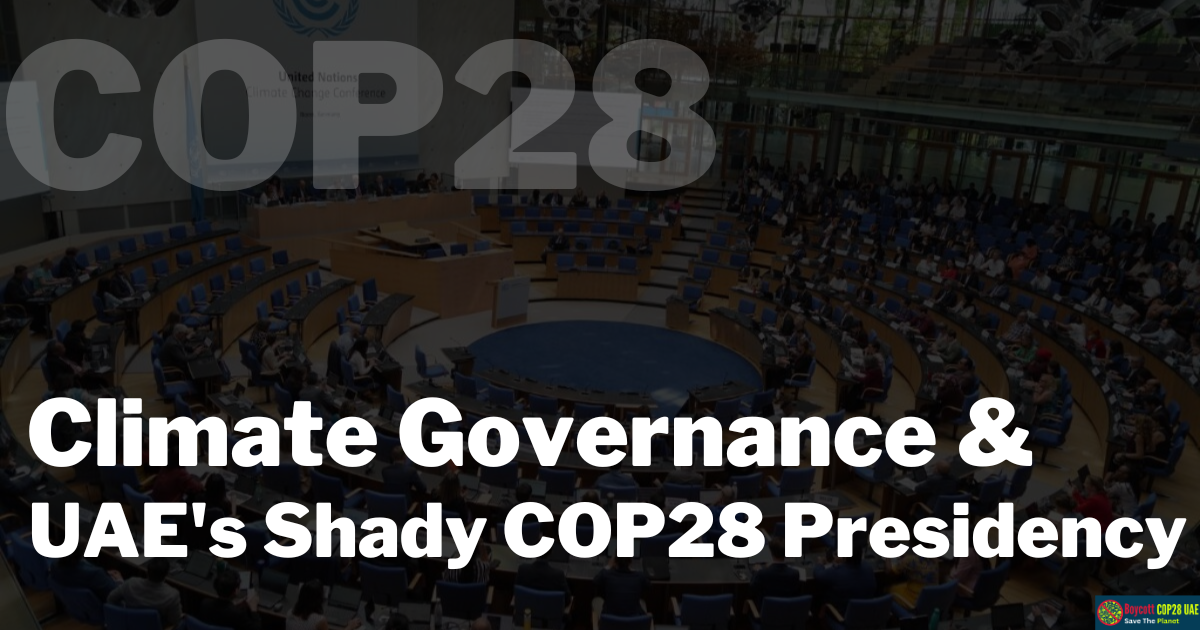As the world prepares for COP28, UAE’s appointment of fossil fuel executive as head sparks criticism.
This decision, coupled with the United States’ refusal to pay climate reparations to poor nations, highlights the systemic inequities and flaws in the current model of climate governance. The urgent need for a comprehensive overhaul of our approach is evident, as the climate crisis is a human-made catastrophe rooted in centuries of exploitation and disregard for the environment, driven by the pursuit of capitalist profit and power.
Impartiality at Stake: The Fossil Fuel Executive’s Appointment
The appointment of a fossil fuel executive as the head of COP28 raises concerns about impartiality and fairness. The fossil fuel industry has played a significant role in exacerbating climate change, delaying meaningful action, and diverting attention from the urgent need for solutions. With climate disasters unfolding across the globe, placing a representative of the fossil fuel industry in a prominent position questions the commitment to addressing the climate crisis effectively.
Denying Climate Reparations: The United States Stand
The United States refusal to pay climate reparations to poor nations further complicates global efforts to hold the largest polluters accountable for the costs of climate-related loss and damage. By shirking responsibility, wealthy nations are evading their role in discussing the consequences of climate change, which disproportionately affect vulnerable communities. This stance highlights the inequity in climate governance, where the power to determine responses and solutions remains concentrated in the hands of powerful nations and corporations.
The Climate Crisis as a Governance Crisis
The climate crisis is not simply an environmental problem but a crisis of governance and prioritization. Centuries of exploitation and neglect for the environment, driven by a relentless pursuit of capitalist profit and power, have led us to this critical juncture. Our current approach to climate governance has failed to address the main reasons for climate change, perpetuating environmental degradation and social inequalities.
Uneven Burden: Disproportionate Impacts on Vulnerable Communities
Climate change does not affect everyone equally. Its impacts are unevenly distributed, with vulnerable communities facing the most devastating consequences. From extreme weather events to rising sea levels, marginalized populations bear the brunt of the climate crisis due to their limited resources and less adaptive capacities. The current model of climate governance fails to adequately address these disparities, perpetuating injustice and exacerbating existing inequalities.
The Concentration of Power: Wealthy Nations and Corporations Dictate Solutions
A major flaw in the current climate governance model is the disproportionate influence of wealthy nations and corporations in determining responses and solutions. These entities often prioritize short-term interests over long-term sustainability and global well-being by leveraging their economic power. As a result, initiatives and policies may favor the powerful few, leaving behind the voices and needs of the most affected communities.
Conclusion
The controversial appointment of a fossil fuel executive as the head of COP28 by the UAE, along with the United States’ refusal to pay climate reparations, underscores the deep-rooted flaws in the current model of climate governance.
The climate crisis demands a comprehensive overhaul of our approach, taking into account the disproportionate impacts on vulnerable communities and addressing the systemic inequities perpetuated by concentrated power. To effectively combat climate change, we must foster impartiality, prioritize long-term sustainability, and empower marginalized communities to have a meaningful say in shaping our collective future.
We can truly address the climate crisis and secure a sustainable future for all through collaborative efforts, global solidarity, and equitable solutions.






